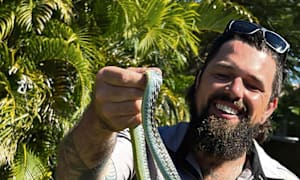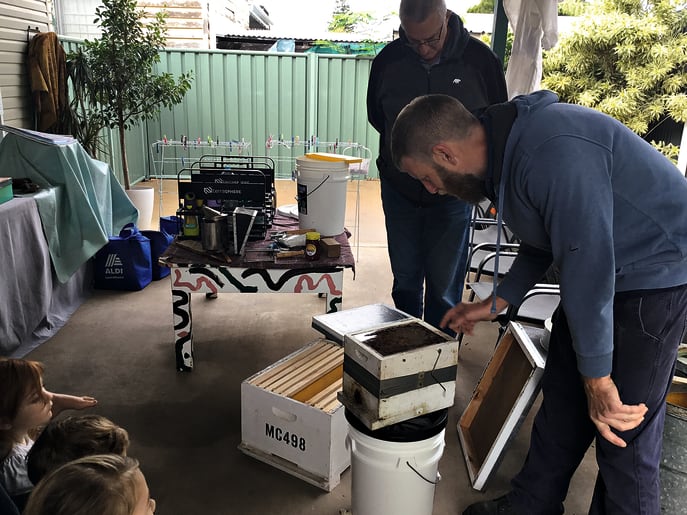
Children learn all about the bees.
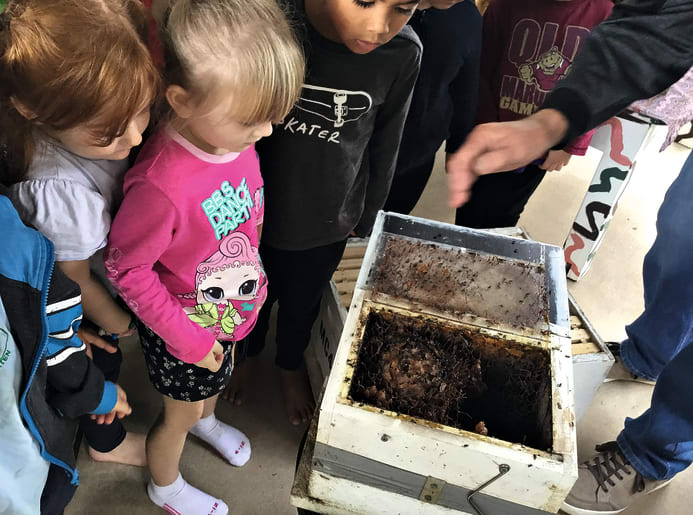
Taking a look inside the bee box.
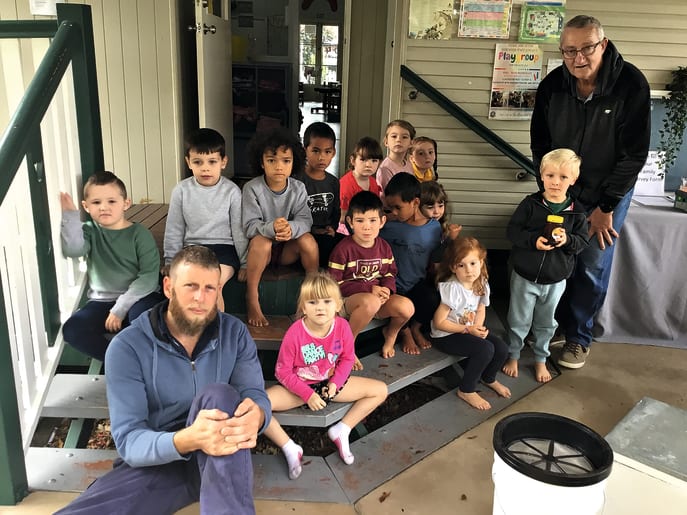
Kindy kids with beekeepers Ian and Matthew.
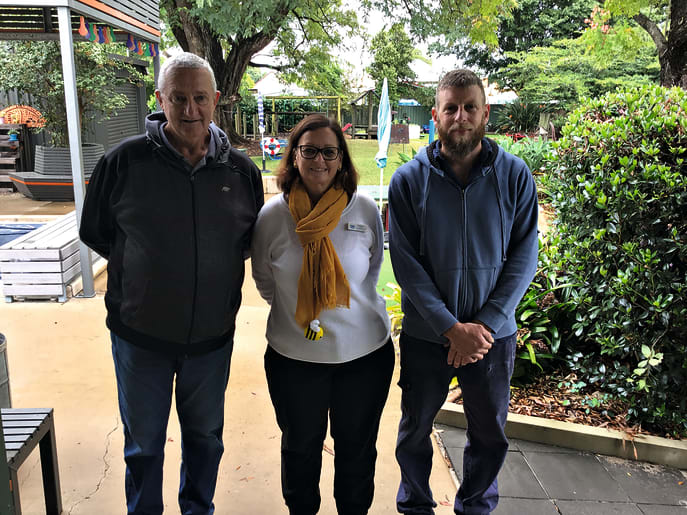
Beekeeper Ian, Debbie Brown from the Kindy and beekeeper Matthew.
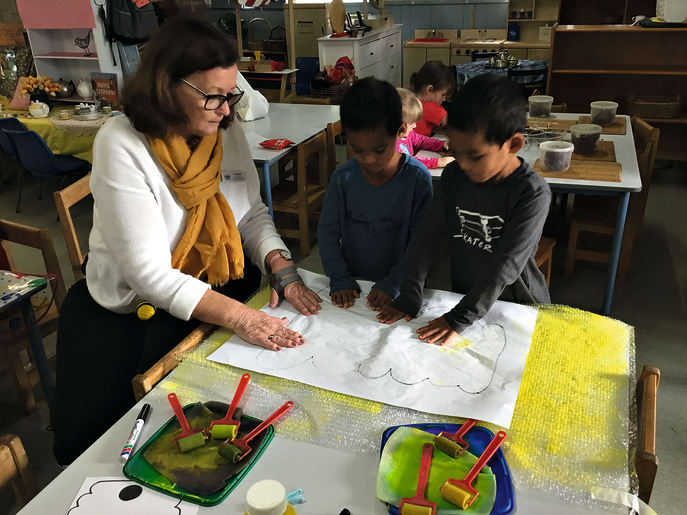
The children enjoy craft activities, as they learn about the life of bees.
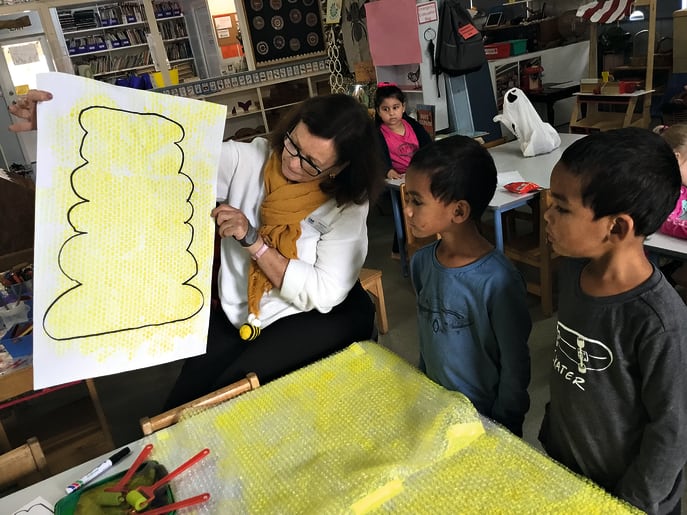
The children enjoy craft activities, as they learn about the life of bees.
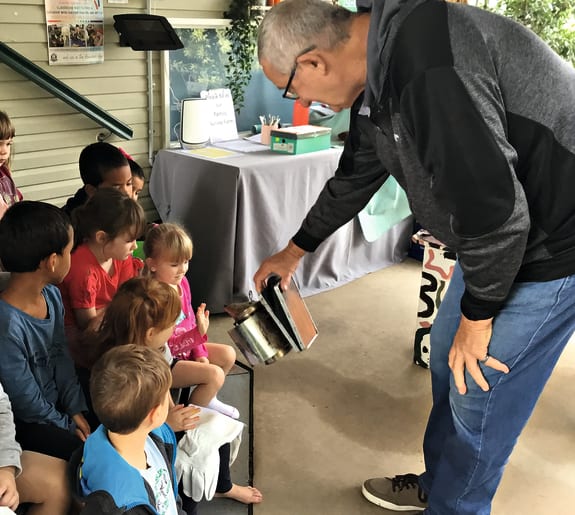
Children learn all about the bees.
TO recognise World Bee Day on Saturday, the Rosewood and District Community Kindergarten invited beekeepers Ian and Matthew to share their knowledge about bee keeping and the importance of bees to the world.
World Bee Day is aimed at drawing attention to the essential role bees and other pollinators play in keeping people and the planet healthy.
Debbie Brown from the Kindy said Matthew is a former Kindy parent and when his children Griffin and Kaydence attended several years ago, he donated a native beehive and has been tending to it ever since.
“We have had several splits of the hive and the children always enjoy tasting the honey as well as observing the little bees come and go every day,” she said.
“Ian is Matthew's father-in-law and he told us that he has been interested in beekeeping since he was very young and now has many hives which produce a large amount of honey.
“Generously Ian donated two pots of honey to the Kindy which we will use for tasting and cooking experiences.
“Ian and Matthew visit us every year at this time and show the children the beekeeping equipment required to look after and extract honey from the beehives.
“We learned many interesting facts about bees, such as bees like the colour red and white bees do a dance to communicate with each other by wriggling their bottom and the pollen that the bees collect and then make into honey tastes like the plants they collect it from, so all honey tastes different.”
The Kindy children made comments like … “bees are lovely at our house”, “bees sting people because people want honey” and “we need bees in the world”.
“After the visit the children went on to do several craft activities, like roller painting to make their own beehive print and drawing bees on to their hive and learning a bee poem,” she said.
“As we played outside later, we watched the native bees flying in and out of their hive.
“Our Kindy has many different flowering plants in our garden to support our native bees as well as the European honey bees and we involve the children in the planting of and caring for these plants.”



